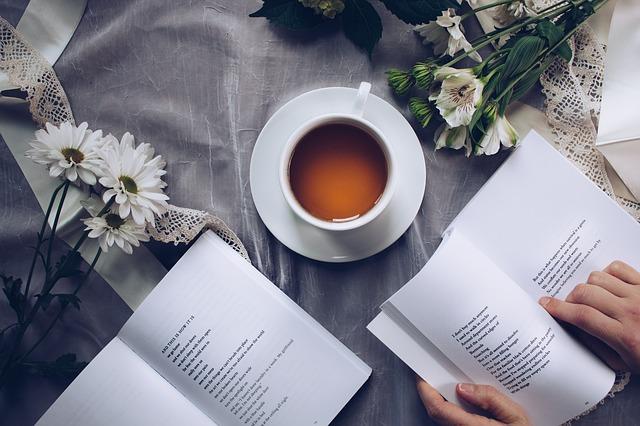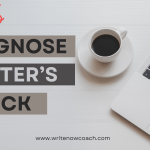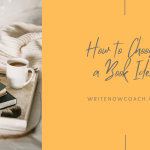Writers@Work: How to Use Poetry to Improve Your Writing
April 3, 2018
Note From Rochelle
Dear Readers,
Happy Spring!
Do you need help getting your manuscript ready for submission or publication? I’m an experienced editor and can help you shape your project into the best possible product. If you’re interested in learning more, book a complimentary consultation.
It’s the beginning of National Poetry month, and today’s tip provides you with some tools for using poetic language in your prose.
Enjoy!
Rochelle

Writers@Work: How to Use Poetry to Spice Up Your Writing
By Rochelle Melander
Several years ago, my daughter and I were in the car, when she said, “I have to be honest with you.” When she starts a sentence like that, I know it’ll be something she doesn’t think I’ll like.
My sigh of relief was probably audible when she confessed, “I don’t really like poetry.”
Oh that, I thought. Most people don’t. At least most of us think we don’t.
Then she said, “Well, our teacher read two poems to us today, and I liked them.”
“So you like some poetry?”
“I guess.”
I feel the same way. I don’t get all poetry. I feel a bit like my daughter—impatient to get to the end, worried I won’t understand it, ready for something juicier.
But listen to what the poets have to say.
Poems are the “daredevils” of writing because a poem will say what nobody else wants to say. Poems speak the unspeakable, and often it’s this honest quality that makes a poem impossible to put down. –Ralph Fletcher, Poetry Matters: Writing a Poem from the Inside Out, p. 16
Poems are “fires for the cold, ropes let down to the lost, something as necessary as bread in the pockets of the hungry.” —Mary Oliver, quoted in Poetry Matters: Writing a Poem from the Inside Out, 101
Writing poetry together heals loneliness. What is true for someone on the deepest level is often true for us all. Reading a poem aloud and listening to the poems of others can heal the alienation which is so much a part of our world. —Rachel Naomi Remen, Preface to Poetic Medicine by John Fox
I don’t know where I would be without poetry. Poetry heals the wounded soul. Poetry strengthens the weakened heart. Poetry offers hope for better days. The regular consumption of poetry inspires us. Writing poetry prevents and combats disease. Poetry can calm, inspire, encourage, soothe, inform, humor, comfort, entertain, challenge, delight, prod, and so much more.
Even those of us who don’t like poetry and can’t figure out how to write a poem can use poetic elements in our writing. Here’s how:
Say it quicker
I love poetry because it gets to the point much more quickly than essays and books. One of the poems my daughter did admit to liking was Hate Poem by Julie Sheehan: http://www.loc.gov/poetry/180/127.html
The poem begins:
I hate you truly. Truly I do. Everything about me hates everything about you.
How great is that? The reader doesn’t have to wonder how the poet feels or what she thinks. It’s all right there in the first three lines. The rest of the poem deliciously describes this hate.
Your turn: Take a paragraph or chapter that meanders toward the point and change it up! Make your point right away… and then support it with juicy language. Does it improve the writing?
Say it shorter
Poets describe the universe with just a few perfect words. Sometimes, they offer us only a glimpse into their world. But because they use the best possible words, it’s enough.
Your turn: Take a long sentence—25 words or more—and see if you can improve it by making it shorter. Be sure to add some sensory words to help the reader understand what you’re getting at.
Add an image
Poets use images to help readers experience what’s happening in the poem. With metaphors, similes, sense words, and more, poets paint pictures for readers.
Your turn: Take one concept in your current work in progress. Instead of telling the reader about it, use an image to describe it.
Listen for music
Poets listen for the rhythm of language. When they construct a line, they place rhymes, repeat sounds, and count the beats of each word.
Your turn: Read your current piece aloud. How does it sound? Would adding internal rhyme, alliteration, or a different word improve how it sounds?
Use details
Poets pay attention to life and use the smallest details to share big messages. No matter what kind of a story you’re telling, including details will convey your message and make your tale memorable.
Your turn: Take a look at your work in progress. What tiny detail could you describe to make your story or concept come alive?
Share
What writing lessons have you learned from reading and writing poetry? Leave your suggestions in the comments below.














